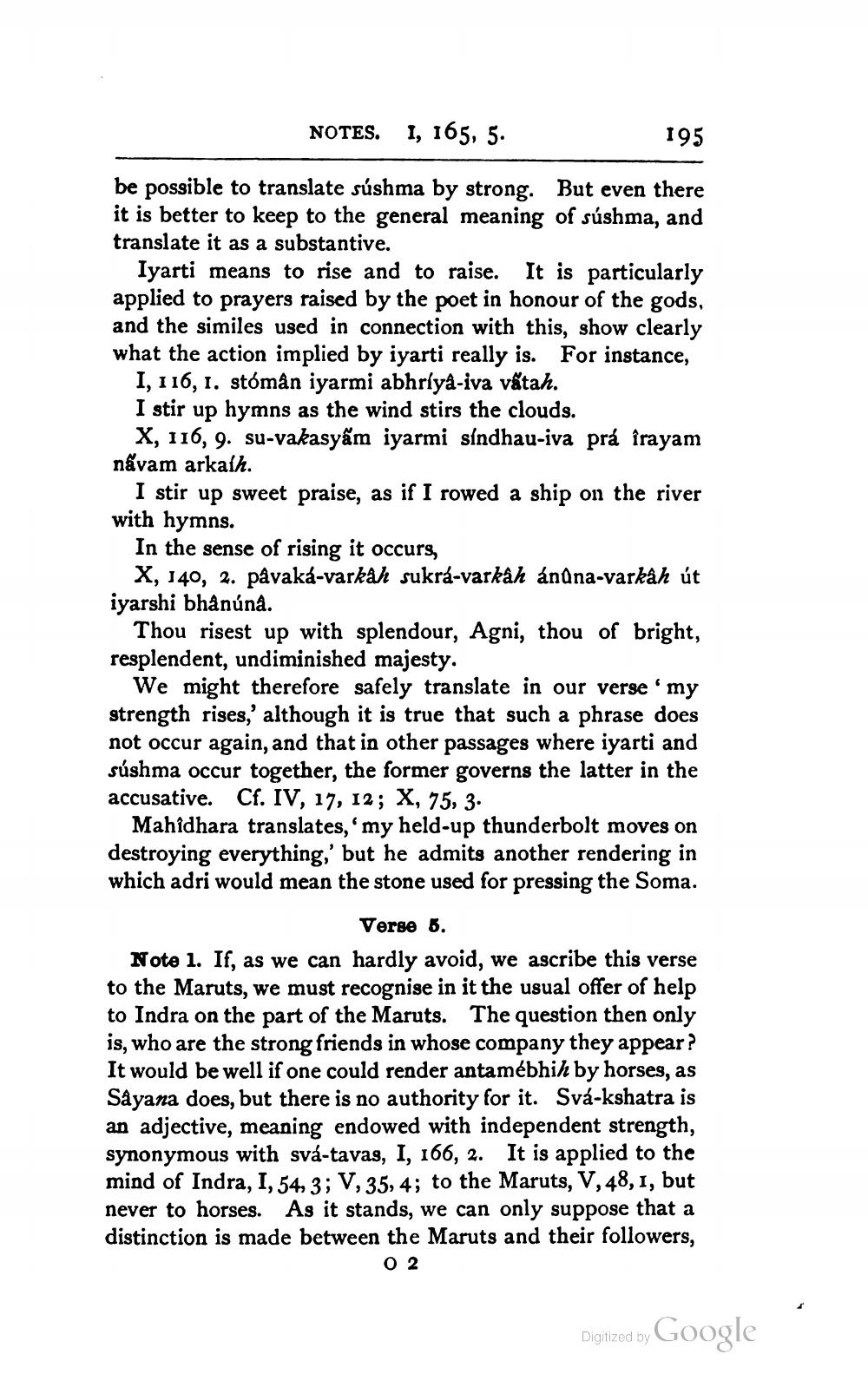________________
NOTES. I, 165, 5.
195
be possible to translate súshma by strong. But even there it is better to keep to the general meaning of súshma, and translate it as a substantive.
Iyarti means to rise and to raise. It is particularly applied to prayers raised by the poet in honour of the gods, and the similes used in connection with this, show clearly what the action implied by iyarti really is. For instance,
I, 116, 1. stómân iyarmi abhrlyâ-iva vatah. I stir up hymns as the wind stirs the clouds.
X, 116, 9. su-vakasyām iyarmi síndhau-iva prá îrayam návam arkalh.
I stir up sweet praise, as if I rowed a ship on the river with hymns.
In the sense of rising it occurs,
X, 140, 2. pavaka-varkah sukra-varkâh andna-varkâh út iyarshi bhånúna.
Thou risest up with splendour, Agni, thou of bright, resplendent, undiminished majesty.
We might therefore safely translate in our verse.my strength rises, although it is true that such a phrase does not occur again, and that in other passages where iyarti and súshma occur together, the former governs the latter in the accusative. Cf. IV, 17, 12; X, 75, 3.
Mahidhara translates,'my held-up thunderbolt moves on destroying everything, but he admits another rendering in which adri would mean the stone used for pressing the Soma.
Verse 6. Note 1. If, as we can hardly avoid, we ascribe this verse to the Maruts, we must recognise in it the usual offer of help to Indra on the part of the Maruts. The question then only is, who are the strong friends in whose company they appear? It would be well if one could render antamébhih by horses, as Sayana does, but there is no authority for it. Svá-kshatra is an adjective, meaning endowed with independent strength, synonymous with svá-tavas, I, 166, 2. It is applied to the mind of Indra, 1, 54, 3; V, 35, 4; to the Maruts, V, 48, 1, but never to horses. As it stands, we can only suppose that a distinction is made between the Maruts and their followers,
O 2
Digitized by Google




